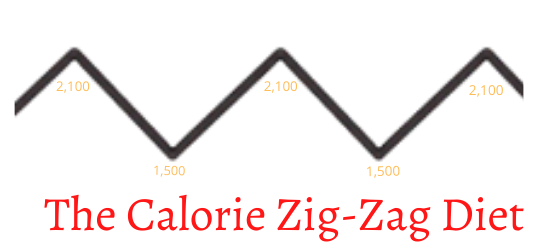
Click Here for Free Bodybuilding and Fitness Magazine Subscription
The Zig Zag Diet
Turn Your Body Into A Fat Burning Furnace With
New Ephedra Free Herbal Fat Melter
"Natural herbal extract burns fat faster and more effectively than many other products. You can be burning a tremendous amount of fat, while preserving your muscle tissue."
"I'm a fitness competitor (for approximately three years) and while taking the Herbal Fat Melter I did see some thinning out around my mid-section, stomach, legs, etc. and some of those stubborn areas. In an environment where everyone is selling herbal supplements and most don't do much at all, this product Herbal Fat Melter delivers especially by cutting the cravings. I was pleasantly surprised to see a positive effect on my energy within the first few use and it does provide all of the benefits. I'm seeing great results with this product."
CJ Daniels
Special Limited Bonus Offer
When you order you will also get two FREE bonuses (valued at $40!)
Bonus #1 - Fat Loss Manual, an easy to follow fat loss guide that gives you a day-by-day plan to make sure you are burning the maximum amount of fat possible.
Bonus #2 - Fat Loss Food Chart, a durable hand-folding guide of food quantities and values to assist in simplifying daily meal preparations.
For full details go to Ephedra Free Herbal Fat Burner
You can also order Fat Melter by calling 800-635-8970 or 503-648-1898, 10 am to 6 pm PST
The Zig Zag Muscle Building Diet Program

Here Im going to show you how to create another type of muscle building diet. This diet system is called the Zig Zag muscle building diet program. Zig Zag actually just means a series of short sharp turns.
Here this corresponds to a three day Zig Zag of your average daily calorie intake. This kind of cycling of calories can be a highly effective way to build muscle and lose fat.
The reason for this is that the human metabolism has a tendency to quickly adjust to a given amount of calories. But to Zig Zag your intake constantly can prevent this from happening.
Before we get started lets find your calorie requirements by performing this less digestible piece of algebra below. Dont worry, I have created a calculator below that will take the headache out of this equation for you.
The Harris-Benedict Equation - (This only estimates your energy requirement in a resting state)
|
Men: |
BMR = 66.473 + (13.7516 x weight in kg) + (5.0033 x height in cm) - (6.7550 x age in years) |
|
Women: |
BMR = 655.0955 + (9.5634 x weight in kg) + (1.8496 x height in cm) - (4.6756 x age in years) |
When you have your Basal Metabolic Rate (BMR) multiply it with your level of exercise activity.
|
Little to no exercise: |
BMR x 1.2 |
|
Light exercise: |
BMR x 1.375 |
|
Moderate exercise: |
BMR x 1.55 |
|
Heavy exercise: |
BMR x 1.725 |
|
Very heavy exercise: |
BMR x 1.9 |
Total Kcal = BMR x Exercise level
Please, remember the initial calculation is simply a starting point. Every week you should make adjustments. You simply increase or decrease your total calorie intake in increments of 5-10% accordingly to how your body responds.
For an easy precise way to find your calorie needs just enter your data in the Basal Metabolic Calculator now. The BMR calculator is based on Harris-Benedict equation but with added activity level factors etc.
Once you know your energy requirements to either maintain, lose or gain weight, depending on your objective, you need to divide your calories into the three macronutrients; protein, carbohydrate and fat.
You can use any macro ratio you want for this diet, but for this example Im gonna use the moderate division of 25/60/15. Protein=25%, Carbohydrate=60%, and Fat=15%.
Here are the formulas:
Protein g = Total Kcal * 0.25 / 4
Carbohydrate g = Total Kcal * 0.60 / 4
Fat g = Total Kcal * 0.15 / 9
For this example lets assume that you need 2000 Kcal a day. This corresponds to your following average macro intake:
2000 * 0.25 / 4 = 125g protein
2000 * 0.60 / 4 = 300g carbohydrate
2000 * 0.15 / 9 = 33g fat
N.B. For a faster way to divide your macronutrients in correct ratios use my macro calculator below.
Calorie intake for:
Day 1: 2000 Kcal * 0.75 = 1500 Kcal
Day 2: 2000 Kcal * 1.00 = 2000 Kcal
Day 3: 2000 Kcal * 1.25 = 2500 Kcal
Protein intake for:
Day 1: Total protein intake g (125g) * 0.75 = 93.75g
Day 2: Total protein intake g (125g) * 1.00 = 125.00g
Day 3: Total protein intake g (125g) * 1.25 = 156.25g
Carbohydrate intake for:
Day 1: Total carbohydrate intake g (300g) * 0.75 = 225g
Day 2: Total carbohydrate intake g (300g) * 1.00 = 300g
Day 3: Total carbohydrate intake g (300g) * 1.25 = 375g
Fat intake for:
Day 1: Total fat intake g (33g) * 0.75 = 24.75g
Day 2: Total fat intake g (33g) * 1.00 = 33.00g
Day 3: Total fat intake g (33g) * 1.25 = 41.25g
So now we know our intake for each day. To summarize results:
Day 1: 94g protein + 225g carbohydrate + 25g fat
Day 2: 125g protein + 300g carbohydrate + 33g fat
Day 3: 156g protein + 375g carbohydrate + 41g fat

